- Home
- Gerald Hammond
In Loving Memory Page 8
In Loving Memory Read online
Page 8
‘Can you type?’
‘Yes.’
There was a pause. I thought that she was putting in contact lenses. ‘I’ve been making a bit on the side, doing typing for local writers and small businesses, but all this lovey stuff gets in the way rather. There’s a short story and a couple of technical articles on the table. Type them up for me and we’ll split the fee. Use my computer. How about it?’
‘Yes. All right.’ I would be needing income and a sound base in the working world.
‘Great! I was trying to make the deposit for a house, but if I’m going to shack up with someone who already has a flat it rather robs the whole thing of its urgency.’
Dorothy turned round on the stool. There had hardly been a pause in her flow of words but her pale eyes were now blue, her silvery hair was brushed and her face was transformed by make-up. From being a half-dressed tart, fit only for the pages of a men’s magazine, she was transformed into the image of a crisp and attractive businesswoman. She groped on the floor for shoes. ‘I must fly. I’ll see you this evening. Or tonight. Or possibly tomorrow. It all depends, doesn’t it?’
Out of the depths of my inexperience, I said that it probably did.
*
With two days to fill, I was content to pass the time busily and, I hoped, profitably, in typing (or, more properly, re-typing) the material on Dorothy’s table. This mainly comprised tatty scripts, typed on a variety of obsolete typewriters and then corrected, altered and amplified in various coloured inks and some of the worst handwriting that I had ever seen. Despite these handicaps the short story took only half a morning, but the technical articles were another matter, containing as they did many terms with which neither I nor the spellchecker on Dorothy’s computer was familiar. By the Tuesday evening, however, after much reference to Dorothy’s enormous encyclopaedia, I had not only completed the fair copies but had familiarized myself with the layout of the YWPA. This might have been designed with the intention of confusing the unwary, with rooms opening off other rooms, so that whenever you think that you have reached the end of the line you open another door and you haven’t.
I also made the acquaintance of some of the other residents. I was driven back to my room by sheer boredom and for lack of anything else to do I began to write down the story of my life so far. I suppose that I could already see that my chosen course could lead almost anywhere.
On the Wednesday, as bidden, I presented myself at the offices of the paper. I had expected to see Mr McRitchie again, but instead I was led immediately into a more expensively decorated office with top-of-the-range furniture. The effect was old fashioned but marred by a metal side-table holding another computer, a fax machine and a stack of newsprint.
Two men were already waiting for me. The one who got up from the executive chair behind the mahogany desk introduced himself as the paper’s editor-in-chief. He was a portly man in his fifties, clean shaven and balding, in a dark pinstripe business suit which, because I am inclined to notice details of men’s dress, I thought had never been expensive and was showing faint signs of wear.
He in turn introduced the man who had been waiting in one of the two upright, leather-seated chairs in front of the desk as ‘Detective Inspector Andrews of the local force.’ Andrews was a lean and sallow man with prominent cheekbones and curly hair which was strangely patchy, being grey at the temples, thin on top and shades of brown elsewhere. He was wearing slacks, a golf jacket and a general air of being slightly but deliberately scruffy, as if to be ready at any moment to pass unobserved in any company but the best.
‘You understand, Miss – ah – Benskin,’ the editor said, ‘that we had to bring the police into it prior to publication? We will still buy your article, if the facts check out.’
‘I do understand,’ I said. ‘You’re afraid of libel. You want to pass the buck to the police.’
He sniffed loudly. ‘I wouldn’t have put it quite like that,’ he said.
Andrews was looking amused. ‘It’s the job of the police to investigate such allegations,’ he said. He picked up the invoices from a corner of the desk. ‘This is all of it?’
‘That’s the lot,’ I said.
‘How did you come by these copies?’
‘I can’t tell you that,’ I said firmly. ‘Nothing illegal, I assure you.’ I hoped that it was true.
‘I need a little more than that,’ Andrews said. ‘There could be no chance of a successful prosecution on the basis of documents printed from a magnetic image which could have been put into a computer by anybody. They’ll have to be verified.’
‘You’re saying that you’ll have to call me as a witness?’
‘At a later stage, yes. For the moment, we can keep your identity and whereabouts confidential.’
Little though I liked it, I could see the sense in what the detective inspector was saying. ‘I used to work for the printers,’ I said. ‘And I was a helper in the election campaign. That’s how I came to see that there were two versions that didn’t even fit where they touched.’
Andrews nodded. ‘For the moment, the source isn’t important so long as the facts can be verified by the printers. The documents speak for themselves. Verification may take time, especially if the printers are disinclined to co-operate. Court orders and search warrants,’ he said vaguely. ‘In the meantime, I’m more concerned about your safety and being able to put my hand on you when I need you.’ He saw a gleam of amusement in my eye and pursed his lips. ‘That’s just an expression,’ he said.
‘I hoped so,’ I said. ‘Why are you concerned about my safety?’
The detective inspector seemed surprised that I had even asked the question. ‘He is a prominent man and a very wealthy one. After all, the laws that he is flouting here were designed to prevent a rich man buying his way into power in order to become richer, so society gets upset when it sees a rich man doing just that. As soon as we start to make enquiries, he will sense danger and he’ll realize that the witness and informant is crucial to any steps being taken against him. He may have sources of information that we know nothing about. And you would not be difficult to find. Need I say more?’
I began to feel distinctly hollow. ‘I suppose not,’ I replied. ‘If you really think—’
‘Put yourself in his position. What would you do?’
Looking at it from that viewpoint, the void in my middle became a vacuum. ‘What should I do?’ I asked.
‘First,’ said Andrews, ‘take it easy. We have routines for these situations. Witness protection, we call it. As I understand it, you’re unemployed?’ – I nodded – ‘That makes it easier. We can spirit you away for a few days without giving too many explanations. Who has to know?’
A few seconds of thought satisfied me that there was no one. ‘I’ve paid at the YWPA until the end of the month, but maybe I should tell the warden I’ll be away for a few days, otherwise I can’t think of anyone else who’d give a damn.’
The two men exchanged a look. ‘Would you write the warden a note?’ asked Andrews. The editor pushed a sheet of paper and a fat ballpoint pen across the desk.
‘Couldn’t I tell her myself?’ I asked. ‘I’ll need some things from my room.’
Andrews shook his head. ‘Segregation starts immediately,’ he said. ‘If you see her, say as little as possible. It’s the only way. If the room’s empty we can let you collect what you want. Otherwise a WPC will collect it. Normally, we would hide a witness among crowds; but you may be a little too noticeable for that. Could you cope with countryside?’
‘Cows and things? I expect so.’ I had had very little acquaintance with the countryside but what little I had seen of it seemed harmless.
‘You can cook for yourself? And probably for a bodyguard?’
‘No problem. And do I still get paid for the article?’
‘Of course,’ said the editor. ‘I think that McRitchie promised you an advance, but it might be better if we purchased the article outright. Is this satisfactory?’
He pushed another paper across the leather desktop. It turned out to be a receipt for a substantial sum of money in return for all rights to my article. He followed it with a fat envelope containing used ten-pound notes. I counted them and the amount corresponded with the figures on the receipt. It was substantially more than I had dared to expect.
My first reservation – a suspicion that I was being cunningly gypped out of my dues – vanished. But without that comparatively harmless possibility, the set-up seemed to be balanced on a knife-edge between honesty and deviousness. I went on talking for a few minutes, not saying anything in particular but using the names that I had been given and I thought that I could sometimes detect a slightly delayed response, as though they were having to think for a millisecond in case of responding to the wrong name, but the delay was so slight that I decided that I was imagining it. And there was something about the inspector. He was, as I said, scruffy except for his hands, which were clean and carefully manicured. I would have expected the reverse of a detective. Then I told myself that I was reading too much into too little. All the same, I decided to leave some sort of a trail. Not too much, but some.
I stowed the money in my shoulder bag, signed the receipt. I was sent off in the care of a man who had been waiting in some nearby room. They referred to him as Jimmy. He seems very gruff but I think we can get along. It was a blessing that I’d already started to tell my story or I wouldn’t have had time. Typing the rest of this while Jimmy thinks I’m packing. Good job I’m quick and Dotty’s printer’s a quiet one.
(The last paragraph reverted to the hasty scrawl of the first.) No more time alone. I’ll leave this somewhere Jimmy won’t see it.
Chapter Eleven
June had already called twice to tell them that their meal was on the table, but Honey had been hurrying to finish the closely typed pages. Sandy, an adept speed-reader, was overtaking her. Now, however, each suddenly succumbed to hunger pangs and to the knowledge that June’s patience would be near extinction. Honey plucked up Minka and they hurried into the dining room where Honey dumped the baby into June’s arms – an act that always had much the same effect on June as popping a dummy into the mouth of a fractious infant.
When they had embarked on the mushroom and herb soup and had the room to themselves, Honey said, ‘I still like the girl, but I like her rather less than I did.’
‘Because she’s a misery guts?’
‘That too. But you can’t help your nature and if she was subject to depression, she had that in common with a lot of talented people. You have to have a thick skin to be content in this world. No, it’s mostly because she’s managed to tell her story without giving away names or places – except for the editor, which may not be a real identity, and the supposed Detective Inspector Andrews who certainly isn’t.’
Sandy nodded sympathetically without interfering with the flow of soup. When his plate and mouth were empty, he said, ‘The only DI Andrews we have for a colleague is putting on weight and he’s rather jolly and rosy-faced. Whether the name Gruber is real or false, a firm of printers that had recently lost a fraudulent member of staff is very unlikely to admit it. Businesses hate admitting to having been defrauded in case it’s taken as an example and an invitation. From her point of view, I suppose she had to guard against accidental discovery of her words before she was ready for disclosure. She probably thought that if push came to shove we could probably work out who was who.’
‘She may have had too touching a faith. But we’ll have to go through the motions,’ Honey said. She helped herself to the last piece of thin, crisp toast and reached for butter. ‘And these aren’t the sort of questions that can be asked over the phone with a realistic chance of an honest answer. We don’t even know where to start. One small town, an inconvenient bus-ride from another but not too far from Edinburgh. We can probably take it as being within easy reach of Glasgow by train, but there must be a hundred such in the central belt.’
‘They all have different accents,’ Sandy said.
‘Only in tiny ways. Could you tell a Grangemouth accent from Falkirk?’
‘I doubt if we have anybody who could. They’d have more chance of telling Possilpark from Govan. But we didn’t hear the girl speak. I don’t suppose her room-mate or Miss Whatsit could do more than tell Edinburgh from Glasgow, but we’ll have to ask them. You’d better let Strathclyde in on the act and get local officers hunting round, looking for businesses and MPs that fit the parameters.’
‘Sensible,’ Honey commented. June re-entered the room with a dish of brown trout. ‘June,’ Honey said, ‘could you cope if I went off for a day or two? Look after my two babies? And the dog?’
June sniffed. ‘Don’t I always?’ she said.
‘I count as one of the babies, do I?’ said Sandy.
‘Of course. But only for catering and laundry.’
‘I don’t get nursed?’
‘No. You don’t get nursed.’
‘You two!’ June said. She flounced out of the room but there was a lift to her voice that said she was not displeased.
*
In the morning, Honey telephoned until her ear felt overheated by contact with the earpiece. With approval obtained by Mr Blackhouse from the chief constable’s office, she set up the enquiries to be made into the identity of the missing girl, made contact with Northern Constabulary and the officer on whose desk the dead girl’s photograph had arrived, and cleared her trip with her superiors. After a light lunch she headed the Range Rover northward.
It was a cold, clear day. The winter sun was low and bright but at least it was behind her and only troublesome when it blazed through one of the mirrors. The CD stack was loaded with a mix of ballet and musicals. The roads were dry for once. As soon as she cleared the Edinburgh traffic she was flying. The A9 was relatively uncluttered so that the usual waits for overtaking opportunities at the sections of dual carriageway proved unnecessary. Her route took her between bare slopes of the Monadhliath and the Cairngorm Mountains. She made the run as far as Inverness in a little over two hours without interference from any Traffic cars.
Inverness is beginning to rank with the worst in Britain for traffic and parking, especially for those not familiar with its so-called traffic system. The sun had dipped and driving was at its most difficult, with car lights, perforce on dipped beam, bright enough to dazzle but, paradoxically, not bright enough to light up the road. Suicidal mammals, including human pedestrians, were next to invisible. It would have been a shorter trip to follow the southern shore of the Beauly Firth, but, well aware of the difficulty of driving in Inverness traffic for the comparative stranger, Honey had booked herself into an excellent hotel in Beauly and arranged to meet her contact there. She survived the worst of the traffic, left Inverness behind at the big roundabout and crossed the big suspension bridge. Almost immediately she turned off as if for North Kessock, nestling almost under the bridge. A stranger might have gone the long way round by Tore, but almost immediately after leaving the main road Honey turned off again, into what seemed like an area of housing; from there an almost insignificant road runs along the very shore of the Beauly Firth, furnishing a short cut for those who know it. It brought her to within a few miles of her destination.
Honey found a parking space right outside her hotel. When she came down from her room, washed and freshly made up, she turned into the lounge. The representative of Northern Constabulary was supposed to be waiting for her there. Several parties of three or four were taking coffee or drinks. There was one man on his own, but he must have been seventy years old if not eighty. That left a rather pudding-faced woman with a black fringe, a large bust and a jacket and skirt of denim.
The woman turned out to be Detective Sergeant Bleeke, ‘Please call me Monica’. She had been home for her ‘tea’ earlier but was quite amenable to following Honey, who had not eaten since her light and early lunch, into the dining room and to accept a cup of tea and a slice of toast.
Honey ordered her usua
l scampi with a single glass of the house white. Not that she had more than a mild fondness for king prawns, but she felt that this was one of the dishes most difficult to prepare satisfactorily at home. With the order placed, Honey was able to give a fuller account of the case so far. DS Bleeke appeared daunted by being suddenly confronted and outranked by an elegant lady dressed soberly but fashionably in soft tweed, but she seemed to be absorbing the information.
‘My boss, Inspector Munro, looked at the photographs,’ said the sergeant at the end of Honey’s recital. ‘He says that you can recognize this area in some of the photographs but there’s not much in the photograph of the dead girl – if that’s what she is – to show that it was taken around here. On his orders, I came over this afternoon and tried to pin down where the photographs were taken from, but that was no good.’ She sighed.
Honey concluded that Monica Bleeke was one of those individuals for whom the effort of using her brain, or even of doing anything at all, was too much. ‘We can’t do much without daylight,’ Honey said. ‘I agree that you can’t see much through the window in the background, but what you can see, and the window itself, look very much like glimpses that you get in the other photographs. Daylight doesn’t last long up here at this time of year. This hotel starts serving breakfast at seven. Meet me outside the North Kessock Hotel at eight thirty and we’ll look into it.’ It occurred to her that the DS was just the sort of person who would mistake the day, time or place. ‘Give me your mobile number.’
Honey finished her meal alone and in peace, fended off the approaches of a predatory male tourist and took to her room. She used her own mobile to call Sandy, as was her invariable habit when sleeping away from home. They exchanged pleasantries. Minka was well and happy. June had grumbled about the amount of laundry she was left to deal with and had then bullied Sandy into changing down to the skin. Pippa had been walked; she had picked up a tick but June had removed it without leaving the head parts behind. Sandy himself was doing well and was just awaiting the arrival of his girlfriend who had promised to come and keep him warm.

 Home to Roost
Home to Roost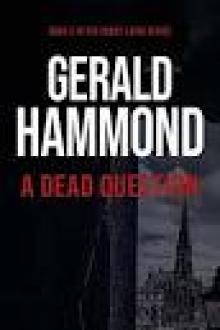 A Dead Question
A Dead Question Twice Bitten
Twice Bitten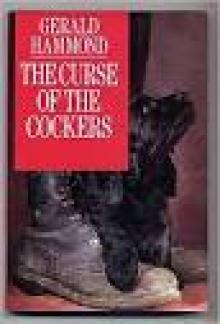 The Curse of the Cockers
The Curse of the Cockers In Loving Memory
In Loving Memory Illegal Tender (Three Oaks Book 12)
Illegal Tender (Three Oaks Book 12) Cold Relations (Honey Laird Book 1)
Cold Relations (Honey Laird Book 1)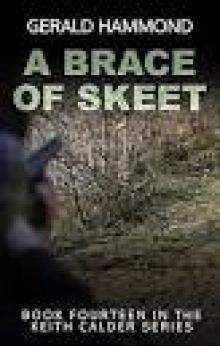 A Brace of Skeet
A Brace of Skeet Silver City Scandal
Silver City Scandal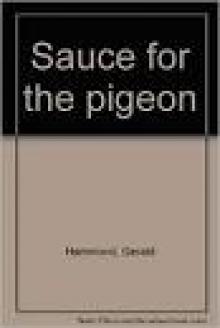 Sauce For the Pigeon
Sauce For the Pigeon Cold Relations
Cold Relations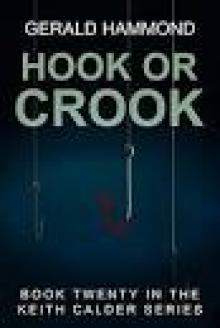 Hook or Crook
Hook or Crook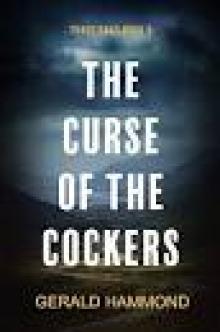 The Curse of the Cockers (Three Oaks Book 5)
The Curse of the Cockers (Three Oaks Book 5) Snatch Crop
Snatch Crop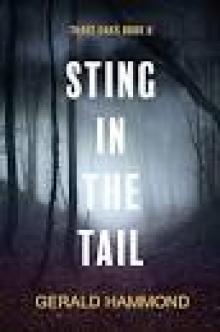 Sting in the Tail (Three Oaks Book 6)
Sting in the Tail (Three Oaks Book 6)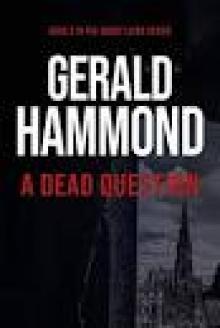 A Dead Question (Honey Laird Book 2)
A Dead Question (Honey Laird Book 2)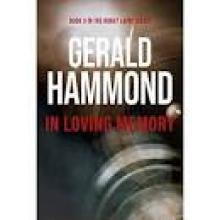 In Loving Memory (Honey Laird Book 3)
In Loving Memory (Honey Laird Book 3) Thin Air
Thin Air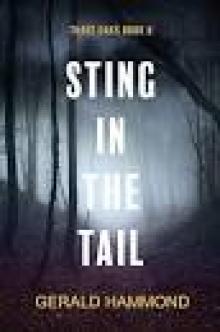 Sting in the Tail
Sting in the Tail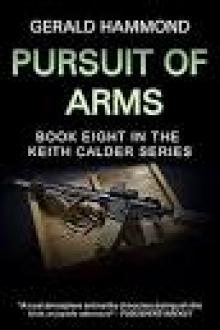 Pursuit of Arms
Pursuit of Arms The Game
The Game Give a Dog a Name (Three Oaks Book 4)
Give a Dog a Name (Three Oaks Book 4) Fair Game
Fair Game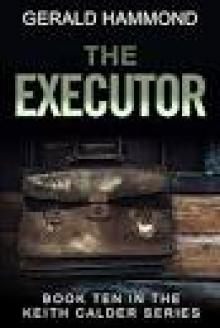 The Executor (Keith Calder Book 10)
The Executor (Keith Calder Book 10) Whose Dog Are You? (Three Oaks Book 2)
Whose Dog Are You? (Three Oaks Book 2)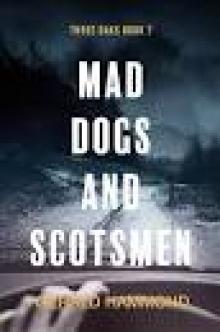 Mad Dogs and Scotsmen (Three Oaks Book 7)
Mad Dogs and Scotsmen (Three Oaks Book 7) Cousin Once Removed
Cousin Once Removed The Worried Widow
The Worried Widow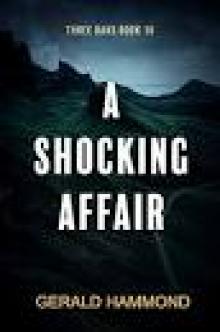 A Shocking Affair
A Shocking Affair Dead Weight (Three Oaks Book 11)
Dead Weight (Three Oaks Book 11) Whose Dog Are You
Whose Dog Are You The Revenge Game
The Revenge Game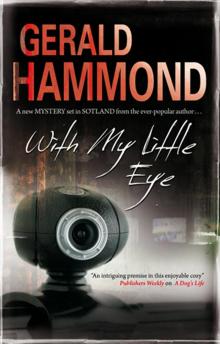 With My Little Eye
With My Little Eye Doghouse (Three Oaks Book 3)
Doghouse (Three Oaks Book 3)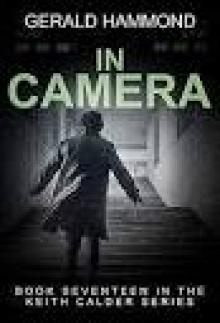 In Camera
In Camera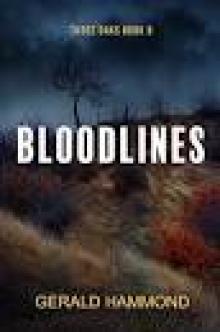 Bloodlines (Three Oaks Book 8)
Bloodlines (Three Oaks Book 8)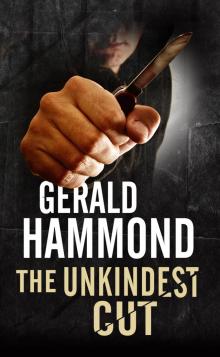 The Unkindest Cut
The Unkindest Cut